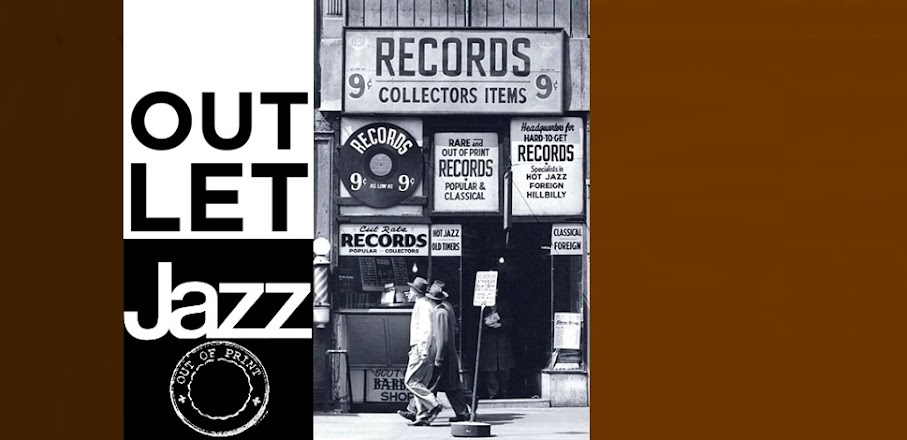The flute, an honorable pastoral spirit in the classical orchestra and chamber groups, is only beginning to be more than glancingly accepted by jazz critics. The jazz musicians, always more hospitable and curious than the critics, have, with rare exceptions, not objected to its increasing inclusion in jazz record sessions and regular combos and orchestra. There have been, however, several dourly skeptical writers, most notably in England, who feel the flute is not capable of projecting all the heat and urgency of elemental jazz.
It is absurd (it seems instantly axiomatic to me) to proscribe any instrument as being inherently alien to jazz. It is the player, after all, who is transmitting the message; the instrument is his means, and if his message is heated and urgent, it will get through. In any case, an increasing number of jazz musicians, especially within the past four and five years, have become intrigued with and soon assured on the instrument; and it is not at all outré to bring a flute to a jam session on an average gig.
A majority of the jazz flutists, however, utilize the instrument secondarily. Frank Wess of the Basie and Jerome Richardson, for example, are primarily tenors although their transformation of the flute into a vessel afire may eventually make the flute their first instrument. Buddy Collette distributes his calm skills about equally among the clarinet, alto, tenor and flute. Bud Shank is still an altoist first and Sam Most continues to concentrate on the clarinet although both have become flute-facile too. Bobby Jaspar of the J. J. Johnson quintet is regarded by his colleagues as a tenor who, on the side, plays warm, singing flute.
Mann, on the other hand, although a professional tenor saxophonist and clarinetist, can be considered the first of the younger jazzmen to regard the flute as his major instrument. Born in Brooklyn on March 16, 1930, he gained experience during three years with an Army band in Trieste and first became known on the jazz scene through his work with the Mat Mathews combo in 1953 and 1954. He started playing flute as well as other reeds with Mat, and as he explains the context at the time, "it was impossible for me to be influenced by any other flute player then, because there were hardly any. I had that advantage. I had heard and been impressed by Harry Klee's flute on a Mary Ann McCall album in the early '50's, but it has been a trumpet player, Miles Davis, who has actually been my one major influence on flute". *Nat Hentoff (liner notes)*
This Columbia LP (a 1981 reissue of an Epic album titled Salute to the Flute) found flutist Herbie Mann accompanied for the first time by a big band on five of the nine selections. Prior to 1959, virtually all of Mann's recordings were bop-oriented, and this one is no exception. Whether it be "Little Niles", "When Lights Are Low", "Beautiful Love" or even "Old Honky Tonk Piano Roll Blues", Mann proves to be an excellent bop soloist; other important players on this date include trumpeter Joe Wilder, altoist Anthony Ortega, pianist Hank Jones, guitarist Joe Puma and bassist Oscar Pettiford. This LP will be a difficult one to find. *Scott Yanow*
The best of the plethora of Mann sets that have hit the market recently. With the aid of excellent musicians, in example, Hank Jones, Anthony Ortega, Joe Puma, Oscar Pettiford, Joe Wilder, Urbie Green, etc., and arrangements by A. K. Salim and Gigi Gryce, the flutist is heard in big, medium-sized and small band contexts, and the music is at once pleasant, interesting, and provides adequate blowing space. Set should be appealing to jazz coterie, and those not so heavily oriented as well. Try "Little Niles" and "A Ritual" as demo bands. *Billboard, October 28, 1957*
Side 1
1 - When The Lights Are Low
(Benny Carter)
2 - Little Niles
(Randy Weston)
3 - Old Honkie Tonk Piano Roll Blues
(Herbie Mann)
4 - Pretty Baby
(A. K. Salim)
Side 2
5 - Beautiful Love
(Victor Young, Wayne King, Egbert Van Alstyne)
6 - Hip Scotch
(Joe Puma)
7 - Song For Ruth
(Herbie Mann)
8 - Noga's Nuggets
(Oscar Pettiford)
9 - A Ritual
(Herbie Mann)
Herbie Mann (flute, alto flute); Bernie Glow, Don Stratton, Joe Wilder (trumpets); Urbie Green, Chauncey Welsch (trombones); Anthony Ortega (alto sax); Dick Hafer (alto and tenor sax); Dave Kurtzer (tenor sax); Sol Schlinger (baritone sax); Joe Puma (guitar); Hank Jones (piano); Oscar Pettiford (bass); Gus Johnson [#1, #3, #5, #6, #8, #9]), Philly Joe Jones [#2, #4, #7] (drums).
Recorded in New York City, April 18 (#2, #4, #7) and April 29 (#1, #3, #5, #6, #8, #9), 1957.


https://www.mediafire.com/file/3s5o4om6vlkxsps/HM_fltmnn.rar/file
ReplyDeleteMuchas gracias Blbs.
ReplyDeleteMuchas gracias.
ReplyDeleteMuchas gracias!
ReplyDeleteWonderful disc! Thanks **blbs**
ReplyDeleteThanks for the Herbie!
ReplyDelete